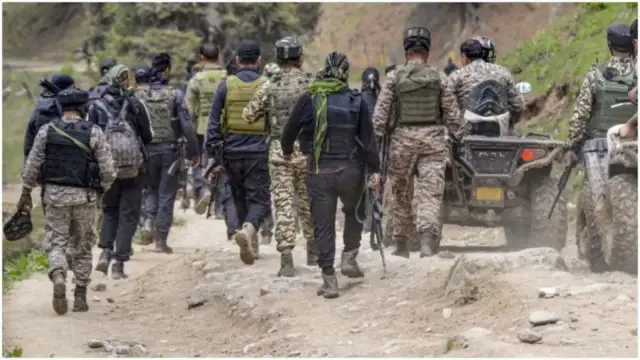Troop deployment crucial for normalizing ties with China, says Jaishankar
Every nation, he claimed, aspires to "excellent ties with its neighbours." Who doesn't? However, there must be a foundation for every relationship."

In a significant statement, India's External Affairs Minister, Dr. S. Jaishankar, emphasized the critical role of troop deployment in the process of normalizing relations with China. The remarks come amidst ongoing geopolitical tensions and strategic recalibrations in the Asia-Pacific region.
Current Status of India-China Relations
India and China, two major Asian powers, have experienced a complex relationship marked by periods of cooperation, competition, and conflict. The border dispute along the Line of Actual Control (LAC) has been a longstanding issue, leading to occasional military standoffs and diplomatic tensions.
Jaishankar's Assertion
Addressing the importance of troop deployments, Jaishankar highlighted that the presence and disposition of military forces along the border significantly influence the overall dynamic between the two nations. He stressed that achieving a state of normalcy and stability in bilateral relations with China hinges on ensuring appropriate troop deployments and managing border security effectively.
Strategic Implications
The assertion made by Jaishankar underscores the strategic dimensions of India's approach towards China. Troop deployments not only serve as a deterrent against potential aggression but also play a crucial role in shaping the broader strategic calculus and deterrence posture in the region.
Border Security and Confidence-Building Measures
Efforts to normalize ties with China are closely linked to initiatives aimed at enhancing border security and fostering confidence-building measures (CBMs). Both countries have engaged in dialogues and negotiations to manage border disputes and prevent escalations, with varying degrees of success over time.
The normalization of relations between India and China carries significant implications for regional stability and global dynamics. As major economies and strategic actors, the manner in which these two nations navigate their bilateral ties influences broader regional security architectures and geopolitical alignments.
Challenges and Opportunities
While troop deployments are pivotal in addressing immediate security concerns, achieving lasting normalization requires a comprehensive approach that addresses underlying political, economic, and strategic factors. Challenges such as divergent interests, historical grievances, and geopolitical competition must be navigated with diplomacy and strategic foresight.
Diplomatic engagement remains central to the process of normalizing ties and resolving outstanding issues between India and China. Dialogues at various levels, including high-level summits, track-two diplomacy, and multilateral forums, provide avenues for constructive engagement and conflict resolution. As India's Foreign Minister underscores the importance of troop deployment in normalizing ties with China, the statement reflects the intricate interplay between security considerations, diplomatic initiatives, and strategic imperatives. Balancing these factors effectively is essential in promoting regional stability, managing bilateral relations, and advancing mutual interests in the Indo-Pacific region and beyond.















